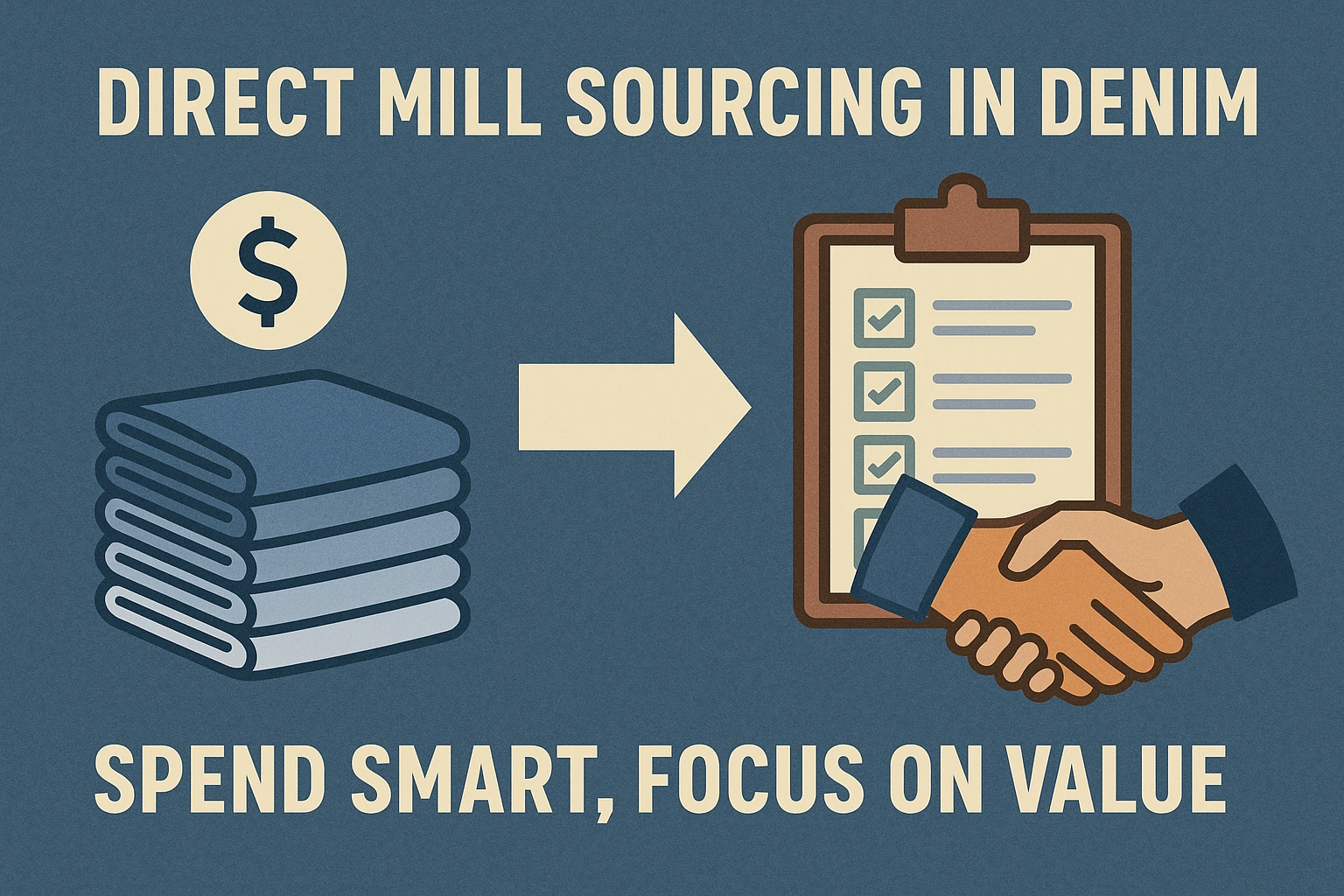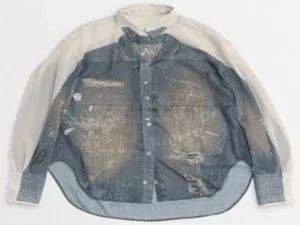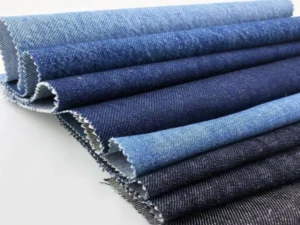Direct mill sourcing in denim has become a smart, cost-effective choice for many denim buyers—from fashion brands to garment manufacturers. However, saving money isn’t just about finding the lowest price per meter. It’s about spending wisely: choosing the right supplier, optimizing quantities, and ensuring quality matches value.
This article outlines eight key factors that help you understand when working directly with a denim mill truly saves money—and how it can deliver both efficiency and product reliability:
- 1. Transparent pricing and cost breakdown
- 2. Order quantity and flexible minimums
- 3. Lead time advantage with in-stock support
- 4. Better control over specs and quality
- 5. Smooth communication and faster sampling
- 6. Technical support and product co-development
- 7. Lower long-term sourcing risk
- 8. Strategic value of long-term direct partnerships
Done right, direct sourcing helps you reduce waste, improve lead time, and avoid unnecessary markups—all while maintaining the quality your customers expect.
1. Transparent Denim Fabric Pricing: Cut the Middle Margin
Direct sourcing eliminates extra markups from traders or buying agents. When you work directly with a denim mill, you see the real base cost of the fabric. This allows you to evaluate cost-to-performance more accurately and manage your margins with greater clarity.

A qualified mill will provide detailed quotations, helping you understand what you’re paying for—whether it’s dyeing complexity, yarn count, or finishing technique. Transparent pricing becomes a strategic advantage when you’re scaling or comparing suppliers globally.
2. Flexible MOQ: More Options Than You Think
A common misconception is that factories only accept large-volume orders. In reality, many mills today have adapted to offer flexible minimum order quantities (MOQs). This is especially true if the supplier maintains an in-stock fabric program, where small batch orders (e.g., 3000 meters) are available without triggering custom production.
This flexibility is vital for emerging brands, regional distributors, or clients running multiple styles in small lots. If your supplier understands the needs of small-to-medium buyers, direct sourcing becomes a cost-efficient and scalable solution.
3. Faster Lead Time with Stock + Quick Response
Time is money in the fashion cycle. A direct relationship with the mill often means faster decision-making and clearer lead time management. Instead of waiting for a trading company to check back with their source, you get updates and confirmations straight from production.
Even more, if the mill holds ready stock or has a fast-response sampling department, you can reduce development time significantly. That helps you react faster to trends or customer requests—without paying a premium for speed.
4. Full Control Over Specifications and Quality
When working directly with the factory, you can customize the fabric specs to your exact requirements. This includes yarn composition, weight (oz), weave type, dye shade, stretch level, and finishing process.
Direct access to technicians, sample rooms, and quality assurance teams allows for greater control and fewer miscommunications. You don’t have to rely on third-party interpretation—you speak to the source, ensuring your final product reflects your original intent.
5. Direct Communication: Faster Sampling, Fewer Errors
Sampling is a critical stage in fabric selection and order confirmation. When buyers work through intermediaries, small details can be lost in translation—especially for denim fabrics where touch, color, and wash behavior are complex.

Direct mill communication helps reduce back-and-forth delays. You can address sampling issues in real time, provide direct feedback to technicians, and avoid costly misunderstandings. This speeds up your development cycle and lowers sampling costs over time.
6. Technical Support and Co-Development
Beyond pricing and delivery, a strong denim mill brings something more valuable to the table: technical expertise. From advising on washing behavior to recommending yarn blends for strength and comfort, experienced factories often become true partners in fabric innovation.
If you’re developing a new style, exploring recycled content, or facing performance issues in washing, a direct mill partner can offer insights and solutions that traders or brokers cannot. This technical collaboration is key to creating value-added products and staying competitive.
7. Lower Long-Term Risk Through Stable Factory Partnership
When working directly with a reputable denim mill, you gain greater consistency in production and a more reliable supply chain. Mills usually have long-term yarn contracts, internal quality checkpoints, and better control over delivery timelines.
This reduces risk in your planning. You’re less likely to experience sudden price jumps, untraceable quality issues, or delivery surprises. Over time, this stability translates into predictable lead times, smoother production schedules, and better customer satisfaction.
8. Strategic Value of Direct, Long-Term Relationships
One of the biggest advantages of direct mill sourcing lies in long-term cooperation. When you build a relationship with your fabric supplier, the benefits go beyond pricing.
You may gain access to exclusive fabric developments, priority during peak seasons, favorable payment terms, and even shared forecasting support. These strategic benefits are rarely visible in the first transaction—but they pay off significantly over time.
Good denim mills don’t just sell fabric—they support your growth. The deeper the partnership, the greater the long-term value.
Conclusion: When Direct Mill Sourcing Truly Pays Off
Direct mill sourcing can absolutely help you save money and build a stronger supply chain—but only when done with the right partner. It’s not just about eliminating middlemen; it’s about maximizing value where it counts: speed, flexibility, technical quality, and long-term reliability.
If you’re looking for a factory that combines production capacity with responsive service and in-depth technical support, ZEVA DENIM is one such partner. Based in China, ZEVA DENIM offers over 200 denim fabric styles with competitive pricing, low MOQs, and fast delivery—helping you make the most of direct sourcing.





